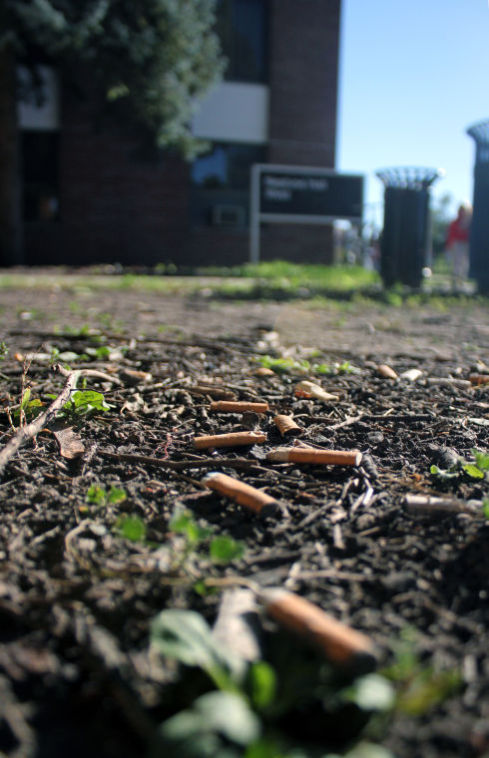Police prepare for crackdown as litter law nears
October 9, 2013
Littering could be just as expensive a habit as smoking.
By Jan. 1, cigarette butts will be considered litter in Illinois, and smokers will be committing a crime when they toss their used cigarettes to the ground. Cigarette butts are the most frequently littered item, according to Keep America Beautiful, a non-profit community improvement group.
First offenses for littering could result in up to $1,500 in fines and six months of jail. Police will use their discretion when determining fines, but there is a mandatory minimum fine of $50 for those caught littering.
“It will have a huge impact on smokers in the community,” said DeKalb Police Sgt. Jim Haacker. “You see so many butts littered on the ground that now will cost you if an officer sees you flick your cigarette butts.”
About 20.9 of Illinois adults smoke cigarettes, according to a 2011 Centers for Disease Control report. In 2009, Keep America Beautiful reported that tobacco products comprised 38 percent of all U.S. roadway litter.
“Doesn’t matter if it’s in a car and you flick the butt out the window onto the highway or you’re sitting on a park bench and you flick the butt on the ground,” Haacker said. “It will all be considered littering and can cost you.”
The revision of the litter law is part of the state’s effort to “go green,” Haacker said.
“The law seems a little bit over the top,” said freshman business major Payton Tamboureas. “Not too many people will know about this change, and it seems really severe punishment for the first offense.”
About 95 percent of cigarette filters are composed of cellulose acetate, a plastic which does not quickly degrade and can persist in the environment, according to Clean Virginia Waterways.
“[The law] really seems odd to me. Where am I going to put it when I am walking?” said sophomore sociology major Amber Holman. “Seems a little too much for something so little.”
More than 3.2 million cigarettes and cigarette filters were removed from beaches and inland waterways during the 2008 International Coastal Cleanup, accounting for more than twice the number of any other debris, according to the Environmental Protection Agency.
“I think they deserve [the punishments]. Littering isn’t good for the environment and smoking [is] nasty,” said freshman pre-med major Tazjane Smith.







